 * Image source/ description: from the site below
* Image source/ description: from the site belowPankaj Nangia/Bloomberg
Secretary of State Hillary Rodham Clinton after her speech at the University of Delhi on Monday.The New York Times
July 21, 2009
Clinton Urges Stronger U.S.-India Ties
By MARK LANDLER
NEW DELHI — With both poetry and prose, the United States pledged Monday to embark on a new era of deeper relations with India — a partnership of what Secretary of State Hillary Rodham Clinton likes to call the world’s largest democracy and its oldest continuously functioning one.
As Mrs. Clinton conjured up a soaring vision of friendship between the two countries in a speech to a university audience here, the Obama administration signed off on a nuts-and-bolts technical agreement that will open the door to lucrative military sales by the United States to India. In addition, India said it had designated two sites where American companies would build nuclear power plants.
“We will work not just to maintain our good relationship, but to broaden and deepen it,” Mrs. Clinton said at a news conference with the Indian minister for external affairs, S. M. Krishna.
Earlier in the day, at the University of Delhi, she leaned heavily on her personal experiences of India to argue that the countries needed to draw more heavily on the vast web of personal connections between India and the United States, home to nearly three million Indian immigrants.
The United States and India inaugurated a strategic dialogue, spanning issues from education to climate change, and drawing in participants from the business world and academia, as well as the government.
“What I see today is thrilling to me,” Mrs. Clinton said, “and what I hope is that the partnership that we are developing together will truly change the future for all of the children in both of our countries.”
The United States generally reserves strategic dialogues for major countries like China, so this is a symbolic acknowledgment of India’s rising role in the world. Mr. Krishna said the dialogue would set a “new agenda for India 3.0” — an allusion to India’s high-tech prowess.
Behind the high-flown talk are some obvious economic considerations: the United States won India’s agreement to allow it to monitor the “end use” of military equipment and technology sold to India, to ensure it is not diverted to other uses or sold to other countries. The provision would pave the way for a proposed sale of 126 advanced fighter jets to India.
India also confirmed the two sites, in Gujarat and Andhra Pradesh States, for nuclear power plants to be supplied by American companies. The contracts, worth billions of dollars, are a key benefit of a civilian nuclear deal with India signed in the last days of the Bush administration.
The American companies, however, will not sign contracts until India agrees to shield them from liability above $450 million in the event of catastrophic nuclear accident. Indian officials told Mrs. Clinton they would press for the protection in the next legislative session.
On this trip, the first by a top official of the Obama administration, Mrs. Clinton’s itinerary spoke as vividly as her words to the changing nature of the relationship. She did not meet Mr. Krishna or Prime Minister Manmohan Singh until Monday, three days after she arrived in Mumbai.
Her schedule has been packed with meetings with Indian business tycoons, a film star, agricultural experts, university students and rural women who work in cottage industries like textiles.
The message, she told a crowd of 700 on Monday, was that “we need not only the professional diplomats who serve in our foreign services and represent our countries to one another. We need the citizen diplomats.”
Mrs. Clinton deployed the full power of her celebrity — regaling the audience with stories about her unsuccessful run for the presidency, her husband, her relationship with President Obama and even her appetite for Indian food.
“I eat way too much of the food at every chance I get,” she said. “I have to go on a diet when I get back home, back to carrots and celery.”
A young female student asked Mrs. Clinton to compare the status of women across countries, noting that India had its first female leader within three decades of its independence while — “if I may say so,” she said gingerly — the United States has not yet elected a woman president.
“You can say so to me,” Mrs. Clinton replied in a sardonic tone that cracked up the crowd.
Clinton Criticizes North Korea
WASHINGTON (Reuters) — Secretary of State Hillary Rodham Clinton said North Korea should not receive the attention it has been seeking through missile tests and other provocative acts, and she compared the nation’s behavior to that of unruly children.
North Korea tested a nuclear device in May and fired seven ballistic missiles earlier this month in defiance of a United Nations resolution.
“Maybe it’s the mother in me or the experience that I’ve had with small children and unruly teenagers and people who are demanding attention — don’t give it to them, they don’t deserve it, they are acting out,” Mrs. Clinton said in an interview broadcast Monday on ABC’s “Good Morning America.”
Copyright 2009 The New York Times Company

![[URGENT PLEA: In Update] EMERGENCY in GANGJEONG Since AUG. 24, 2011](http://2.bp.blogspot.com/-3iz8k-USXVY/TlmRYhhIYtI/AAAAAAAAL2c/9dbF85ZIkIs/s227/jejusit.jpg)
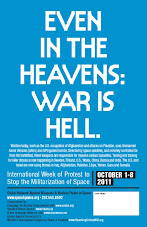
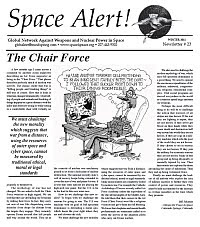

![[Solidarity from Japan for the Jeju] 253 individuals and 16 groups/organizations](http://2.bp.blogspot.com/_gnM5QlRx-4c/TR_YeNVE1yI/AAAAAAAAHWQ/ARyf6oQN0S0/S227/jeju_12_10j.jpg)
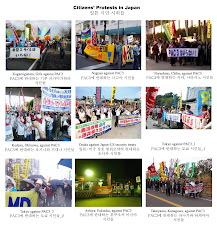
![[Translation] Korean organizations' statement: Immediately cancel the joint ROK-US drill Nov 26](http://2.bp.blogspot.com/_gnM5QlRx-4c/TPOE8VKXHFI/AAAAAAAAGlM/8lryt-8sFjc/S227/1.jpg)
![HOT! [Hankyoreh Hani TV] Beneath the Surface: the investigation into the sinking of the Cheonan](http://4.bp.blogspot.com/_gnM5QlRx-4c/TOI83qht8aI/AAAAAAAAGXU/22SW6Q5ntV8/S227/HaniTV%2BCheonan.gif)
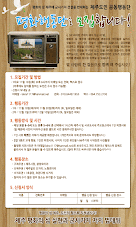
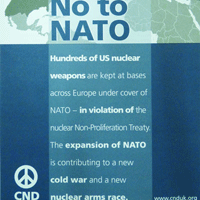

![[Translation]Statement against illegal inspection and unjust lay-off by the Kunsan USAFK!(Nov_2010)](http://4.bp.blogspot.com/_gnM5QlRx-4c/TOPLsVkZMqI/AAAAAAAAGZs/3YnnckIyAaY/S227/gunsan%2Bprotest.gif)
![[Translation] Korean organizations' statement against dispatching special force to the UAE on Nov.](http://4.bp.blogspot.com/_gnM5QlRx-4c/TOP95zHXlCI/AAAAAAAAGak/E0Ug1XtUFfM/S227/antiwarpeace.jpg)
![[Translation] Stop, Joining MD!: South Korean activists' statement and writing on Oct. 25, 2010](http://3.bp.blogspot.com/_gnM5QlRx-4c/TOP7Es4_2sI/AAAAAAAAGac/eWVMPD-U4p0/S227/StopMD.jpg)
![[In Update] People First, NO G-20 (Nov. 6 to 12, Korea)](http://2.bp.blogspot.com/_gnM5QlRx-4c/TJd53XBzHlI/AAAAAAAAFQo/ldO9JPE3eqo/S227/left21_G20.jpg)
![[International Petition] Stop US helipad plan in Okinawa to save great nature](http://4.bp.blogspot.com/_gnM5QlRx-4c/TKC2AHRNzBI/AAAAAAAAFUo/yGWXODTw_uM/S227/yanbaru_w.jpg)

![[Global Network] against the first launch of Quasi-Zenith Satellite, Japan, on Sept. 11, 2010](http://4.bp.blogspot.com/_gnM5QlRx-4c/TIowa1boy4I/AAAAAAAAFDI/82rAi98uq-c/S227/Qzss-45-0_09.jpg)

![[In update] Some collections on the Koreans’ protests against the sanction & war on Iran](http://4.bp.blogspot.com/_gnM5QlRx-4c/TJMvke6t8zI/AAAAAAAAFO4/tamQ8LUnOOA/S227/No+Sanction+on+Iran.jpg)
![[Three International Petitions] to End the Korean war and peace treaty(or peace resolution)](http://1.bp.blogspot.com/_gnM5QlRx-4c/THef7bzWxYI/AAAAAAAAE44/wwdzSDfYhdw/S227/border.jpg)
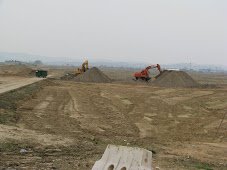


![[Collection of Documents] No Base Learning and Solidarity Program_Korea(June 14 to 20, 2010)](http://1.bp.blogspot.com/_gnM5QlRx-4c/TCTvVuN8NeI/AAAAAAAAEek/8vBJVaHdk10/S227/No-Base-banner.jpg)
![Site Fwd:[John Hines] A U.S. Debate coach’s research trip on the Issues of Korea](http://3.bp.blogspot.com/_gnM5QlRx-4c/TINCO36mzzI/AAAAAAAAE_w/Rds12NcBOXM/S227/Jeju-Peace-Tour.jpg)


![[News Update] Struggle Against the Jeju Naval Base since Jan. 18, 2010](http://1.bp.blogspot.com/_gnM5QlRx-4c/S1vvWaP25uI/AAAAAAAACkg/QvpW1tgOlKM/S226/scrum1.jpg)


![[Urgent] Please spread the Letter!: There was no Explosion! There was no Torpedo! (May 26, 2010)](http://4.bp.blogspot.com/_gnM5QlRx-4c/S_9JmsKEU7I/AAAAAAAAEP8/sAWjSPqxzUI/S227/grounded.jpg)
![Text Fwd: [Stephen Gowans]The sinking of the Cheonan: Another Gulf of Tonkin incident](http://1.bp.blogspot.com/_gnM5QlRx-4c/TAL_FtYKQ-I/AAAAAAAAERE/NEEMijiEcRM/S227/lee-myung-bak.jpg)
![[Japan Focus]Politics in Command: The "International" Investigation into the Sinking of the Cheonan](http://1.bp.blogspot.com/_gnM5QlRx-4c/TBMJ2syJzyI/AAAAAAAAEZU/uTYZccU5vyk/S227/wen_jiabao_and_lee_myungbak.png)
![[Japan Focus] Who Sank the SK Warship Cheonan? A New Stage in the US-Korean War and US-China](http://2.bp.blogspot.com/_gnM5QlRx-4c/S_iQ2vE5ZpI/AAAAAAAAEOU/Oo1SPcAe8FE/S227/buoy_map.gif)
![[Updated on 12/13/10] [Translation Project] Overseas Proofs on the Damages by the Military Bases](http://4.bp.blogspot.com/_gnM5QlRx-4c/S-qSj59gPLI/AAAAAAAAEGM/mwjlFtPE-jo/S227/missile.jpg)
![[International Petition] Close the Bases in Okinawa](http://3.bp.blogspot.com/_gnM5QlRx-4c/S8-z3DYNwNI/AAAAAAAADo4/OswTSchK09M/S227/2.jpg)

![[In Update]Blog Collection: No Korean Troops in Afghanistan](http://4.bp.blogspot.com/_gnM5QlRx-4c/SwnlLD9IewI/AAAAAAAAB9E/oUPssnpNidA/S226/No-Troops-to--Afghanistan.jpg)
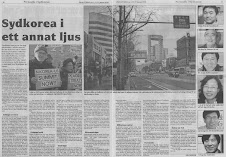

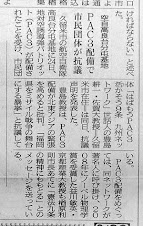

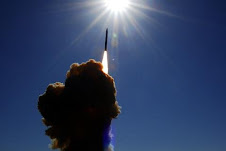



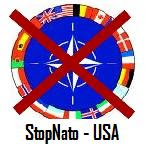


No comments:
Post a Comment